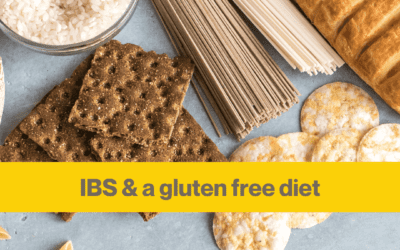We need to get vitamin C from our diet, we can’t make it ourselves like some animals can, but you can easily find it in fresh fruits and vegetables.
It’s important for our immune system. Our white blood cells need enough vitamin C to destroy viruses that we encounter, especially during the winter.
How sugar inhibits vitamin C
Sugar from the food we eat is broken down into glucose, and this helps give us energy. Glucose and vitamin C both need to get from the blood into the cells where they do their work.
They get into our cells through the same gateway because they have a similar chemical make-up.
Your body prefers to let glucode in to the cell at the expense of vitamin C. This means if there is an excess of glucose in the blood, then glucose is prioritised. This comes from our evolutionary ‘fight or flight’ mechanism, always allowing the body to use glocse which enables us to run from danger.
Supplementing with Vitamin C is less effective fighting colds in those people who eat a lot of sugar as well.
Sugar also feeds pathogenic bacteria in the gut which gives rise to more inflammation across the body, placing more strain on the immune system.
Every cell membrane is made up of fats, and when we eat healthy omega-3 fatty acids, such as those found in flax seed and fish oils, more nutrients can pass into cells as the membranes are more effective.
As cell membranes become permeable, blood glucose will reduce, making vitamin C more bioavailable.
Vitamin C rich foods
Foods rich in vitamin C include:
- red peppers
- parsley,
- broccoli,
- cauliflower,
- spinach,
- kale,
- strawberries,
- oranges,
- kiwi fruit,
- & tomatoes.
Vitamin C is water soluble, which means when you boil vegetables some of the vitamin C will leak out into the water. The levels of vitamin C also decrease over time, so the fresher your produce is the better.

IBS Nutritionist
Hi, I'm Anna Mapson, registered Nutritional Therapist.
I help people with IBS and SIBO get control of unpredictable gut symptoms to find long term relief from painful and embarrassing IBS without restrictive dieting.
I can help you to:
- understand your digestion better, so you recognise your triggers
- eat a well balanced diet, with tasty meals that are simple to prepare
- reintroduce your trigger foods so you can get back to enjoying food again
Find more about my 3 month 1:1 Gut Reset programme.
Comfort Eating Tips – Overeating
Are you a comfort eater? Eating more than normal at the moment? During this uncertainty of the corona virus, there are significant stressors in our lives, so many people turn to food to help them feel better. When cortisol is higher we will look for energy boosting...
Store Cupboard Cooking
Are you looking for inspiration for store cupboard cooking? Want to know how to make beans taste nice? We are in strange times for food shopping and cooking with everyone at home. Most foods seem to be available (except flour and yeast) but I know people are spring...
Gluten free diet for IBS – How to be healthy
Are you following a gluten free diet for IBS? There is a growing trend to give up gluten, and with the shelves full of gluten free products there is more choice than ever before if you're gluten free. Prefer audio? >> 🎙️listen to my PODCAST EPISODE - Should I...


